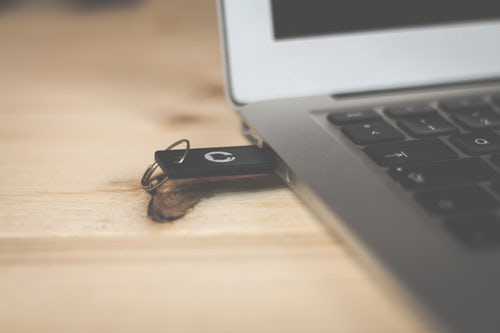USB flash drives are convenient and they can be used for many purposes. They are useful for business professionals and any average computer user. Flash drives make it easy and fast to transfer data between computers. When you want to bring a 10GB of data, you don’t need to haul around a laptop. Flash drives could hold huge amount of data and they are faster than ever. However, USB flash drives are posing various risks. USB flash drives are easily infected by virus. They can be damaged by water and physical impacts. Because flash drives are small, you can be misplaced or stolen. When you lose a flash drive, your company data could be threatened. If you don’t have an effective backup plan, you may lose the data permanently.
Here are things you should do to safeguard data stored in USB flash drive:
- Use encryption: Encryption can be software- or hardware-based. Even if someone manages to steal your flash drive, the files need to be decrypted, so their content can be read. Decryption requires password or encryption certificate. In some cases, encryption requires biometric information, such as retina or finger print recognition.
- Remove files automatically: Files in flash drives could have expiration date and they will be deleted at specific time. This can be performed automatically or manually. When the time is reached, files could be deleted with multiple passes. So, it will be difficult to undelete these files.
- Restrict access to sensitive files: There should be different categories of files and employees should get the right level of authorization. It means that, employees can’t do anything they want with a file. This is a good method for preventing data leaks.
- Use flash drives with smaller space: Often, critical data don’t reach 1GB in size. If you are bringing a 32GB flash drive all the time, it’s likely that you will accumulate plenty of crucial data. Look for 2GB or 4GB flash drives in the market, so you will store less files.
- Enforce policies: Companies should enforce policies about flash drive usage, so risks of accidental data loss can be reduced. It is true that policies won’t stop disgruntled employees from doing serious damage. But, policies could prevent negligence and mishaps. As an example, flash drives should be used only for transferring files, not for storing them. No file could remain inside flash drives for more than one week. Any transfer of file to the flash drive should be performed by an administrator and the identity of the individual should recorded inside the logbook.
- Use antivirus and firewall: It is very easy for virus to infect flash drives and spread the digital pathogen to other devices. When connected to a computer, make sure that the computer has firewall and antivirus installed.
Although the above steps won’t guarantee 100 percent that your flash drive are protected, but risks will be significantly minimized. The benefits of flash drives are huge, but they are quite vulnerable, due to their convenience and portability. Everyone needs to be vigilant. Flash drives are not easily infected, but they could also be the source of infection.


















